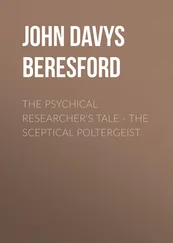John Davys Beresford - H. G. Wells
Здесь есть возможность читать онлайн «John Davys Beresford - H. G. Wells» — ознакомительный отрывок электронной книги совершенно бесплатно, а после прочтения отрывка купить полную версию. В некоторых случаях можно слушать аудио, скачать через торрент в формате fb2 и присутствует краткое содержание. Жанр: Биографии и Мемуары, foreign_home, Языкознание, foreign_antique, на английском языке. Описание произведения, (предисловие) а так же отзывы посетителей доступны на портале библиотеки ЛибКат.
- Название:H. G. Wells
- Автор:
- Жанр:
- Год:неизвестен
- ISBN:нет данных
- Рейтинг книги:5 / 5. Голосов: 1
-
Избранное:Добавить в избранное
- Отзывы:
-
Ваша оценка:
- 100
- 1
- 2
- 3
- 4
- 5
H. G. Wells: краткое содержание, описание и аннотация
Предлагаем к чтению аннотацию, описание, краткое содержание или предисловие (зависит от того, что написал сам автор книги «H. G. Wells»). Если вы не нашли необходимую информацию о книге — напишите в комментариях, мы постараемся отыскать её.
H. G. Wells — читать онлайн ознакомительный отрывок
Ниже представлен текст книги, разбитый по страницам. Система сохранения места последней прочитанной страницы, позволяет с удобством читать онлайн бесплатно книгу «H. G. Wells», без необходимости каждый раз заново искать на чём Вы остановились. Поставьте закладку, и сможете в любой момент перейти на страницу, на которой закончили чтение.
Интервал:
Закладка:
J. D. Beresford
H. G. Wells
I
INTRODUCTION
In his Preface to the Unpleasant Plays , Mr Shaw boasts his possession of "normal sight." The adjective is the oculist's, and the application of it is Mr Shaw's, but while the phrase is misleading until it is explained to suit a particular purpose, it has a pleasing adaptability, and I can find none better as a key to the works of Mr H.G. Wells.
We need not bungle over the word "normal," in any attempt to meet the academic objection that it implies conformity to type. In this connection, the gifted possessor of normal sight is differentiated from his million neighbours by the fact that he wears no glasses; and if a few happy people still exist here and there who have no need for the mere physical assistance, the number of those whose mental outlook is undistorted by tradition, prejudice or some form of bias is so small that we regard them as inspired or criminal according to the inclination of our own beloved predilection. And no spectacles will correct the mental astigmatism of the multitude, a fact that is often a cause of considerable annoyance to the possessors of normal sight. That defect of vision, whether congenital or induced by the confinements of early training, persists and increases throughout life, like other forms of myopia. The man who sees a ball as slightly flattened, like a tangerine orange too tightly packed (an "oblate spheroid" would be the physicist's brief description), seeks the society of other men who share his illusion; and the company of them take arms against the opposing faction, which is confirmed in the belief that the ball is egg-shaped, that the bulge, in fact, is not "oblate" but "prolate."
I will not elaborate the parable; it is sufficient to indicate that in my reading of Mr Wells, I have seen him as regarding all life from a reasonable distance. By good fortune he avoided the influences of his early training, which was too ineffectual to leave any permanent mark upon him. His readers may infer, from certain descriptions in Kipps , and The History of Mr Polly , that Wells himself sincerely regrets the inadequacies of that "private school of dingy aspect and still dingier pretensions, where there were no object lessons, and the studies of book-keeping and French were pursued (but never effectually overtaken) under the guidance of an elderly gentleman, who wore a nondescript gown and took snuff, wrote copperplate, explained nothing, and used a cane with remarkable dexterity and gusto." But, properly considered, that inadequate elderly gentleman may be regarded as our benefactor. If he had been more apt in his methods, he might have influenced the blessed normality of his pupil, and bound upon him the spectacles of his own order. Worse still, Mr Wells might have been born into the leisured classes, and sent to Eton and Christchurch, and if his genius had found any expression after that awful experience, he would probably, at the best, have written polite essays or a history of Napoleon, during the intervals of his leisured activity as a member of the Upper House.
Happily, Fate provided a scheme for preserving his eyesight, and pitched him into the care of Mr and Mrs Joseph Wells on the 21st September 1866; behind or above a small general shop in Bromley. Mrs Wells was the daughter of an innkeeper at Midhurst and had been in service as a lady's maid before her marriage. Joseph Wells had had a more distinguished career. He had been a great Kent bowler in the early sixties, and it must have been, I think, only the year before the subject of our essay appeared at Bromley that his father took four wickets with consecutive balls and created a new record in the annals of cricket. The late Sir Francis Galton might have made something out of this ancestry; I must confess that it is entirely beyond my powers, although I make the reservation that we know little of the abilities of H.G. Wells' mother. She has not figured as a recognisable portrait in any of his novels.
The Bromley shop, like most of its kind, was a failure. Moderate success might have meant a Grammar School for young Wells, and the temptations of property, but Fate gave our young radical another twist by thrusting him temporarily within sight of an alien and magnificent prosperity, where as the son of the housekeeper at Up Park, near Petersfield, he might recognise his immense separation from the members of the ruling class, as described in Tono-Bungay .
After that came "the drapery," first at Windsor and then at Southsea; but we have no autobiography of this period, only the details of the trade and its circumstances. For neither Hoopdriver, nor Kipps, nor Polly could have qualified for the post of assistant at Midhurst Grammar School, a position that H.G. Wells obtained at sixteen after he had broken his indentures with the Southsea draper.
At this point we come up with Mr Lewisham, and may follow him in his experiences after he obtained what was, in fact, a scholarship at the Normal School of Science, South Kensington; but we drop that hero again before his premature marriage and failure, to follow the uncharted course of Wells obtaining his B.Sc. with first-class honours; passing to an assistant-mastership at the Henley House School, St John's Wood, and so coming by way of tutor, lecturer and demonstrator to the beginnings of journalism, to the breaking of a blood-vessel and thence, without further diversion, to the trade of letters, somewhere in the summer of 1893.
I have taken as my text the normality of Mr Wells, on the understanding that I shall define the essential term as I will; and this brief outline of his early experiences may help to show, inter alia , that he viewed life from many angles before he was twenty-seven. That he had the capacity so to see life was either a lucky accident or due to some untraceable composition of heredity. That he kept his power was an effect of his casual education. He was fortunate enough to escape training in his observation of the sphere.
Persistent repetition will finally influence the young mind, however gifted, and if Mr Wells had been subject to the discipline of what may be called an efficient education, he might have seen his sphere at the age of twenty-seven as slightly flattened—whether it appeared oblate or prolate is no consequence—and I could not have crowned him with the designation that heads this Introduction.
He is, in fact, normal just in so far as his gift of vision was undistorted by the precepts and dogmas of his parents, teachers and early companions.
II
THE ROMANCES
Mr Wells' romances have little or nothing in common with those of Jules Verne, not even that peculiar quality of romance which revels in the impossible. The heroes of Jules Verne were idealised creatures making use of some wonderful invention for their own purposes; and the future of mankind was of no account in the balance against the lust for adventure under new mechanical conditions. Also, Jules Verne's imagination was at the same time mathematical and Latin; and he was entirely uninfluenced by the writings of Comte.
Mr Wells' experiments with the relatively improbable have become increasingly involved with the social problem, and it would be possible to trace the growth of his opinions from this evidence alone, even if we had not the valuable commentary afforded by his novels and his essays in sociology. But his interest in the present and future welfare of man would not in the first place have prompted him to the writing of romance (unless it had been cast in the severely allegorical form of The Pilgrim's Progress ), and if we are to account for that ebullition, we shall be driven—like Darwin with his confounding peacock—to take refuge in some theory of exuberance. The later works have been so defensive and, in one sense, didactic that one is apt to forget that many of the earlier books, and all the short stories, must have originated in the effervescence of creative imagination.
Читать дальшеИнтервал:
Закладка:
Похожие книги на «H. G. Wells»
Представляем Вашему вниманию похожие книги на «H. G. Wells» списком для выбора. Мы отобрали схожую по названию и смыслу литературу в надежде предоставить читателям больше вариантов отыскать новые, интересные, ещё непрочитанные произведения.
Обсуждение, отзывы о книге «H. G. Wells» и просто собственные мнения читателей. Оставьте ваши комментарии, напишите, что Вы думаете о произведении, его смысле или главных героях. Укажите что конкретно понравилось, а что нет, и почему Вы так считаете.












